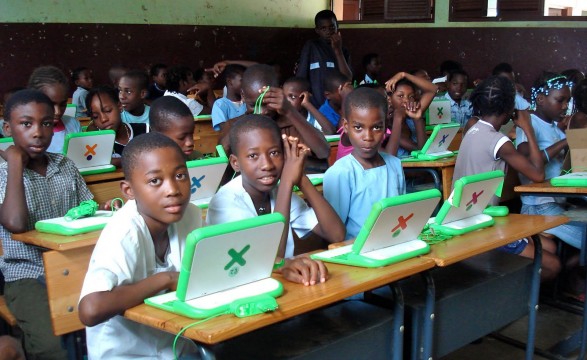Remember Jubilee’s key promise to Kenyans, concerning the issuing of laptops to elementary school students? Well, let’s see how far it’s gotten. This initiative intends to grow the ever demanding need for digital literacy in Kenya. In 2015, we saw the government perform its annual budget reading, claiming that the distribution of laptops to students will enjoy Kshs 17.58 billion in funding, for the deployment of ICT tools and devices to several primary schools throughout Kenya.
The government later announced, earlier this year, that the Jomo Kenyatta University of Science and Technology and the confederations of Moi University-JP SA Couto won the Kshs. 17 Billion tenders to distribute the laptops. The distribution of the laptops to 22,000 schools began this month, with about 600,000 devices to be delivered.
The two departments that won the tender each have a required number of counties to deliver the devices to, with their activities limited to those specific areas.
The procedure involves a week’s training for the concerned teachers. Teachers are taught several matters dealing with ICT, that help them get a better grasp of the technology, so they can adequately demonstrate the same to their own students. “We train the teachers in content creation, how to use the devices from both the teacher and student angle”, says Calvin Kebati, the Director at Nairobi Industrial and Technology Park.
The next step is to ensure if the different schooling environments are conducive to provide effective learning with the concerned laptops. Important factors include electricity and secure storage facilities. Once these two procedures are conducted successfully, then the particular school receives installation of the devices, where the laptops are set-up.
The devices provided include 14-inch laptops for teachers, 10-inch tablets for learners, a projector for each of the schools, and 12 inch laptops with braille key boards, headphones and an embosser for special needs students. The devices include an E-library, where teachers can create and upload their own content for access and future use, how to do this is also taught in the teachers’ training process.
Once the devices have been installed, post installation training and support is provided. For any further inquires on the devices, a teacher can contact the dedicated call center. The project has also been working to identify ICT victors who are mainly teachers within the school to serve as trainers and deal with any emerging issues with the devices. These are among the several ways the initiative seeks to help teachers understand how to use the devices delivered to their schools, for the betterment of the students’ learning experience.




